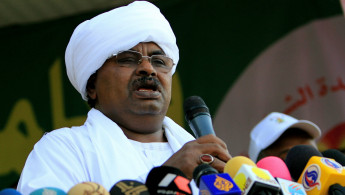"The chief of the transitional military council, Abdel Fattah al-Burhan, has accepted the resignation of... the chief of NISS," the transitional military council said.
Ghosh had overseen a sweeping crackdown led by NISS agents against protesters taking part in four months of mass demonstations that led up to the toppling of veteran president Omar al-Bashir by the army on Thursday.
Thousands of protesters, opposition activists and journalists were arrested in the crackdown that left dozens killed and hundreds wounded.
Before Bashir's ouster, NISS agents made several bids to disperse tens of thousands of protesters who have camped outside the army headquarters in the capital since April 6 demanding Bashir's ouster.
Their efforts proved abortive as troops intervened but police said on Friday that 16 protesters had been killed at the sit-in over the previous two days.
Bashir had appointed Salih as NISS chief in February 2018, which was the regime insider's second stint at the post.
His previous stint ended in August 2009.
Salih, had worked on and off for NISS ever since the 1989 coup that brought Bashir to power, according to Sudanese media.
He was credited with building NISS into one of the most important pillars of Bashir's regime before his dismissal in 2009.
He was later jailed on accusations of plotting a coup but no evidence was found against him and Bashir pardoned him.
Over the years NISS has overseen repeated crackdowns on government opponents and the media.
Its agents frequently confiscated the entire print-runs of newspapers that criticised government policy or reported on anti-government protests.
Follow us on Twitter: @The_NewArab





 Follow the Middle East's top stories in English at The New Arab on Google News
Follow the Middle East's top stories in English at The New Arab on Google News
![The UAE is widely suspected of arming the RSF militia [Getty]](/sites/default/files/styles/image_330x185/public/2024-11/GettyImages-472529908.jpg?h=69f2b9d0&itok=Yauw3YTG)
![Netanyahu furiously denounced the ICC [Getty]](/sites/default/files/styles/image_330x185/public/2024-11/GettyImages-2169352575.jpg?h=199d8c1f&itok=-vRiruf5)
![Both Hamas and the Palestinian Authority welcomed the ICC arrest warrants [Getty]](/sites/default/files/styles/image_330x185/public/2024-11/GettyImages-2178351173.jpg?h=199d8c1f&itok=TV858iVg)